- Learning time
- 90 minutes
- First play time
- 300 minutes
Star Wars: Rebellion
Designed by: Corey Konieczka
In Star Wars: Rebellion one player (or team) takes the role of the Empire, whilst the other oversees the Rebel Alliance.
The board shows a map of the Star Wars universe, with a number of ‘systems’ containing planets. Both sides begin the game with a number of pieces in play: these are iconic Star Wars creations such as X-wings, AT-ATs and so on. For the first game, the rulebook gives you a handy set-up, but on future plays this can be different. Before the game commences, the Rebel player chooses one of the planets to be the location of the rebel base – but this is kept secret from the Empire. Each player takes a set of Leaders (characters from the Star Wars world) and a Mission cards, and the game commences.
The Empire’s goal is to find and destroy the Rebel base (if they land ground troops on the planet where the base is, the Rebel player must confirm the base is discovered) and the Rebel player’s objective is to gather enough support in the galaxy that the Empire is undermined. How they do that is via missions and objectives: Play advances through the placement of the leaders, which can either be used to move troops around the board (from one planet to any adjacent planet) or to lead missions – by placing them on mission cards, which are then revealed one by one. Missions do a variety of things, but needless to say they won’t necessarily be successful – any leader left in your ‘pool’ can be assigned to oppose a mission, and this will trigger combat. The combat is decided by dice rolls; but it’s not purely down to chance. Which leaders are facing off and what troops they control will have some bearing too. The Rebels’ progress is measured by a Reputation marker that starts on number 14 of the turn track. At the end of every round, the time marker will move one step further toward the Reputation marker. And the Rebels are trying to push the Reputation marker in the other direction: toward the time marker – should the two ever meet, the Rebels have advanced their reputation enough to win the game.
After all Missions have been resolved, the current round ends and players draw mission cards and advance any units in production along the build track – a way of generating new troops or ships on any planets you have under your control. The time marker moves up the time track, and a new round begins. At the start of every round, the Empire side discovers two planets on the board that do not contain the Rebel base – so for both sides time is running out: The Empire have less and less time to discover where the base is, and the Rebels less and less planets effectively covering their tracks.
There’s more to Rebellion than that, as evidenced by the wide variety of missions; the systems that are loyal to either side that may become subjugated; the fact that each ship can only carry a certain amount of troops, that different leaders have different abilities, the fact the Rebels may have to defend a planet in order to prevent their base being discovered – Or indeed, defend a different planet zealously in order to present the illusion that their base is located there. A game with a lot going on!
The guru's verdict
-
Take That!
Take That!
Heavy. You're fighting a war.
-
Fidget Factor!
Fidget Factor!
There can be the odd lull whilst players consider how to assign their leaders.
-
Brain Burn!
Brain Burn!
See Fidget Factor. Rebellion is not exactly light on rules, and you're juggling your objectives with expectations of what the other side might get up to. Playing the Rebels has the added pressure of not wanting to give away where exactly your base is.
-
Again Again!
Again Again!
You can play both sides, you can choose different leaders, and the Mission cards give a good deal of variety.

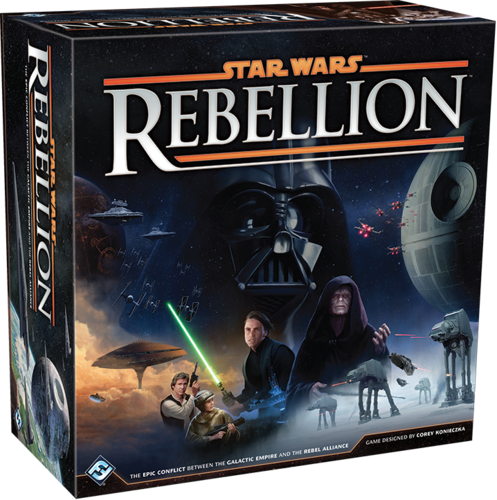

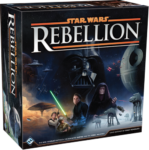
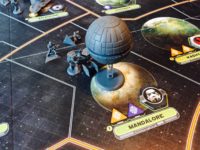
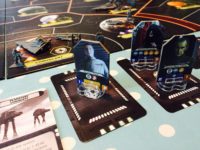
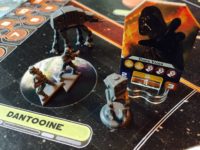
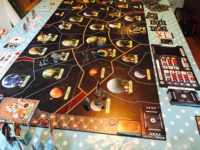


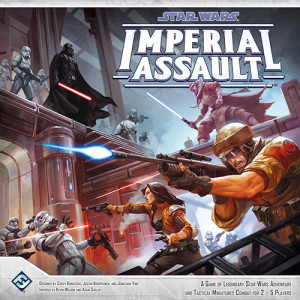
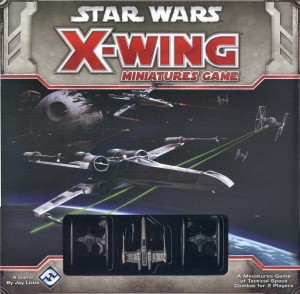
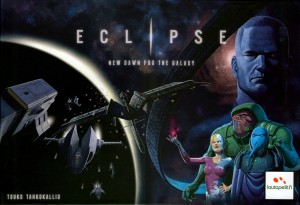
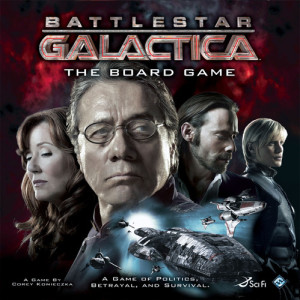
Sam says
I am absolutely not the target audience for this. I'm not anti-Star Wars by any stretch, and I don't mind a sci-fi theme. I can appreciate the intricacy of the design and even admire how much this game has packed into it: not just strategy and tactics, but brinkmanship, second-guessing, tabletalk, some luck (which in the parameters of the game, works as part of the anarchy of combat) as well as the overall mounting tension for both sides. I think it does a fantastic job of telling a grand, cinematic story that really drips with theme. I also think it's a more interesting proposition, narratively, than sister game Imperial Assault. For me, it's just too drawn out for what it offers. Everyone has their own definition of what makes a game, and call me shallow, but when a game passes that 90 minute mark, I need to be more invested in it than I found myself here. Balancing that - my son utterly loves it. As do a zillion other sons/daughters/dads/mums.